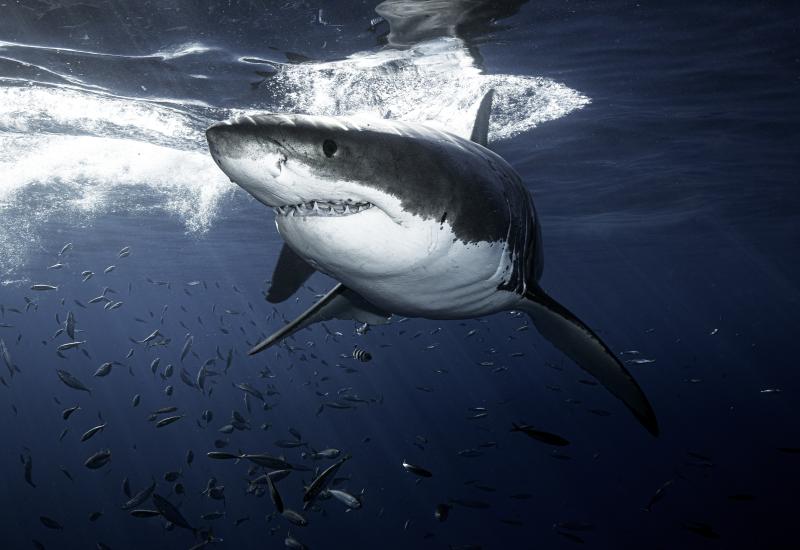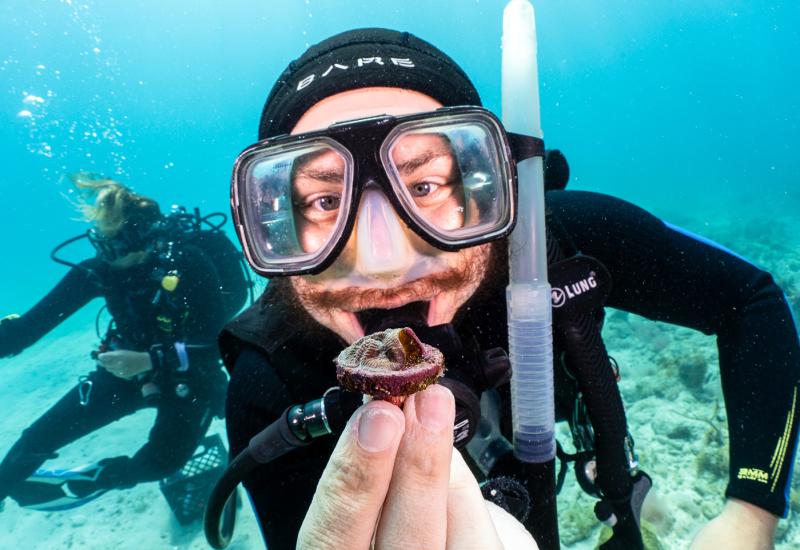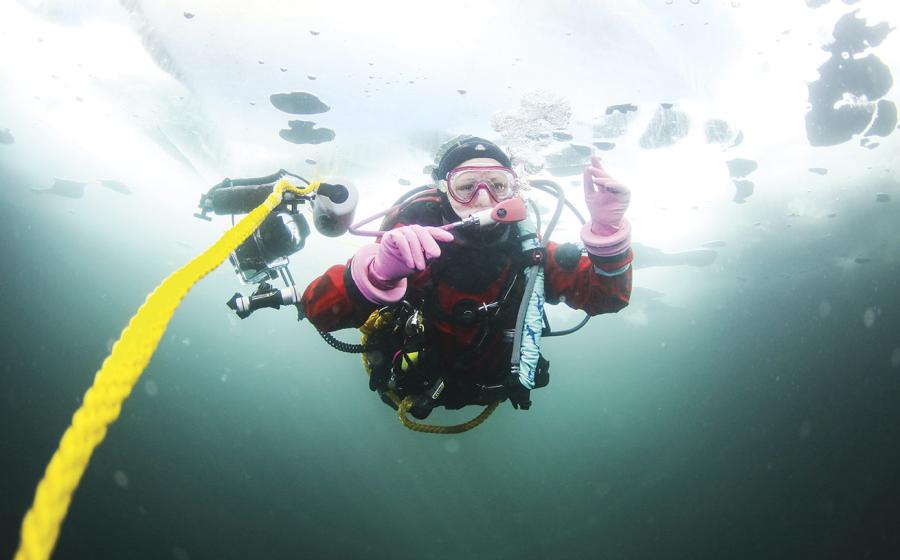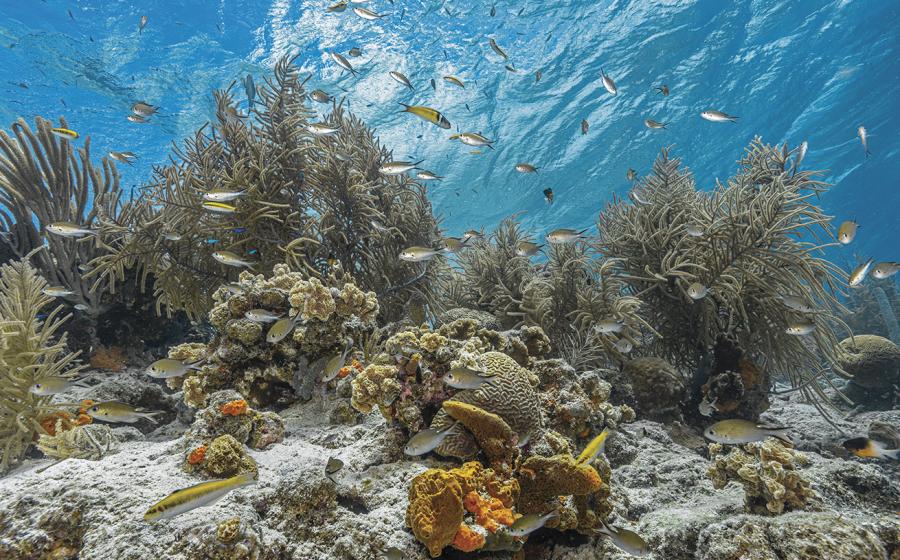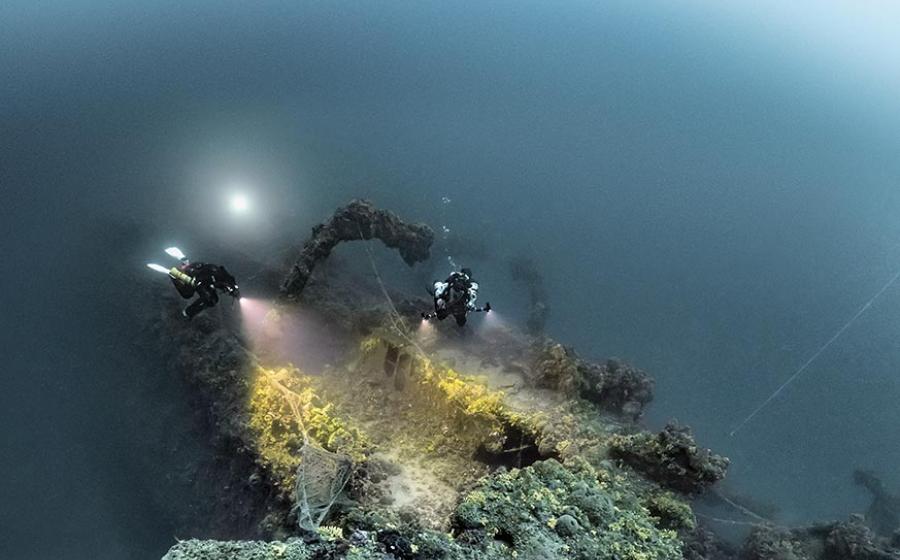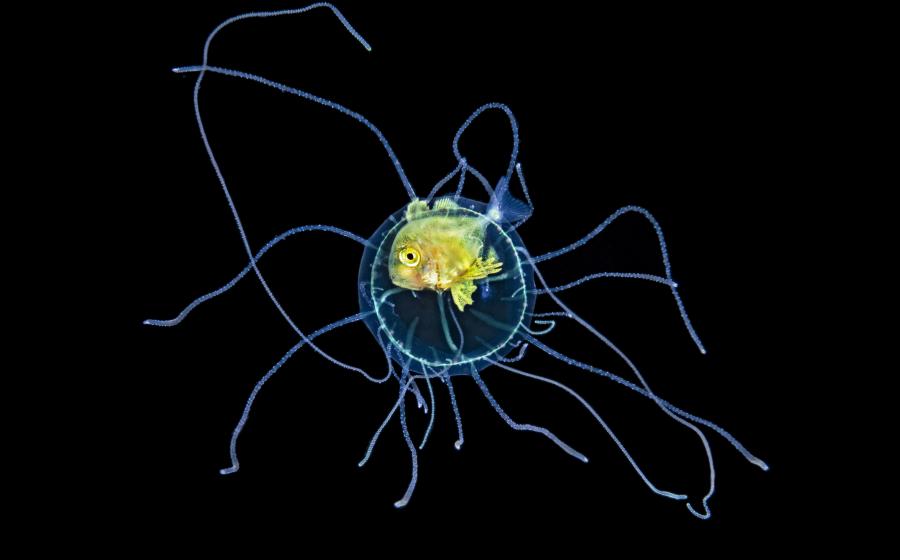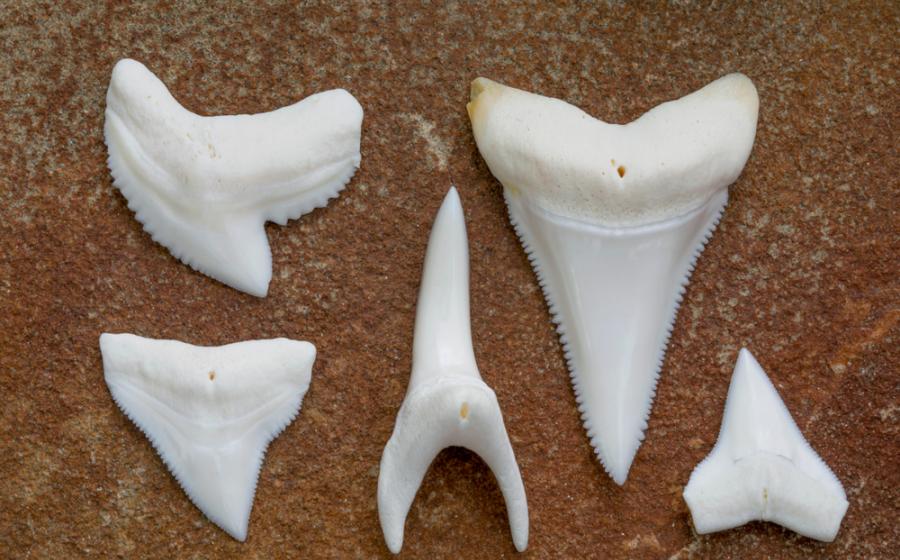Scuba Diving in Search for Signs of a Changing Mediterranean

Shutterstock.com/Nikolay HristakievAs waters warm up, researchers across the region are teaming up with diving centers to monitor the advancement of heat-loving species and other symptoms of climate change.
On a Tuesday in early August, Tatiana Geloso dips into the water at Piramidi. The dive site is close to the southwestern tip of Ustica, a volcanic rock island in the Mediterranean about 42 miles north of Palermo, Italy. She usually dives there to visit her friend Max, a huge Dusky grouper. But today the longtime diving instructor is on a mission to collect data on what other fish are swimming in the area as the water temperature reaches its annual zenith.
The Mediterranean Sea is warming up faster than the global ocean, driving fish to change the latitude and depths they call home in order to stay in a comfortable water temperature. Some are cases of tropicalization, where non-native tropical species find the increasingly toasty Mediterranean habitable and make their way through the manmade Suez Canal. Then there’s meridionalization, where fish that used to live only in the Mediterranean's warmer southern waters expand their territory further north as these waters heat up.
Take the parrotfish.
"Ten years ago, there were no parrotfish here," Geloso says. This herbivore usually resides in the southern Mediterranean and eastern Atlantic, from Portugal to Senegal. In the last decade or two, their presence has expanded northward to regions like the shores of Ustica, where divers spot it with increasing frequency. It’s just one of the many changes Geloso was not expecting to see in a lifetime, much less within 28 years.
These shifts and the invasions of non-native species may affect local ecosystems, in some cases transforming and reducing underwater biodiversity. With all of the Mediterranean Sea to observe for this and other signals of change, researchers across the region are teaming up with divers like Geloso to gather underwater data.
"Citizen science was born a long time ago on land to help researchers observe bird migration routes," says Carlo Cerrano, a Zoology professor at Marche Polytechnic University in Ancona and head of an Italian nonprofit affiliated with the Reef Check Foundation, an international organization that helps citizen scientists collect underwater data.
Gathering enough observational data to conclude anything meaningful in the sea or sky requires many eyes roving a broad geography for a long time. Researchers often lack the resources to pull this off, so passionate laypeople jump in to fill in the gap. "Underwater we are still far behind. We do not have a precise idea of organism distribution,” says Cerrano.

Shutterstock.com/aquapixThe European parrotfish (Sparisoma cretense) is one of the species expanding its habitat north in tandem with warming waters.
Programs like Sea Sentinels and Reef Check encourage volunteers to collect data on species distribution and other measures of climate change in marine protected areas (MPAs) across the Mediterranean Sea. Today there are at least 26 dive centers in Italy alone, and 27 trainers and instructors across Malta, Croatia and Spain, ready to support those who want to contribute to science through training and surveying events.
Geloso’s shop, Mare Nostrum, was among the region’s dive centers to pilot scientific partnerships, getting her recreational divers to conduct visual fish censuses for researchers in Spain and Italy. It was at the dive center she previously owned on Sicilian Pelagie Islands, an archipelago much closer to the heart of the Mediterranean than Ustica, where she first began to encounter species that were not supposed to swim in the Strait of Sicily. First, she spotted the Sally lightfoot crab, an invasive non-indigenous species. Then, there was the Dusky spinefoot and the Bluespotted cornetfish, both tropical fish native to the Indo-Pacific. Talking about these sightings to the marine scientists working on the island, she realized the unprecedented times and major shifts she was witnessing underwater.
At Piramidi, she dives into the water with a board and underwater pencil to monitor the advancement of 15 species identified by researchers as “indicators of climate change” in a July 2022 Frontiers in Marine Science article. Seeing animals like the parrotfish here, out of their usual range, may help researchers track their expansion in the north.
The validity of data collected by such volunteers relies on their ability to correctly identify species. Marco Spoto, who joined Geloso’s Ustica crew to do his thesis on this visual census technique, concluded that, generally, only the data collected by very skilled or assisted divers was scientifically accurate.
"Data collected through citizen science can be scientifically valid when volunteers are adequately trained," Reef Check’s Cerrano says. Divers can get this training through programs offered by the European divisions of PADI and Divers Alert Network (DAN). In addition to fish identification, these programs teach divers the protocols used by Reef Check and MPA Engage, a climate change research project led by the Institute of Marine Sciences (ICM) of the Spanish National Research Council (CSIC). Apart from the fish visual census, others aim at tracking mass mortality events or the health of those forms of life living near the seafloor.
“Reef Check engages hundreds of divers across the Mediterranean,” Cerrano says, using its scientifically validated data to populate a species distribution map and feed a European marine biodiversity database.
Back at the office, Geloso takes a picture of the board she annotated during her dive. She logs onto her diving center’s Sea Watchers profile, an online platform run by CSIC, and enters her observation data. As soon as a team of scientists validates it, her entry will appear on the platform’s Climate Fish project map. It will also populate a comprehensive map detailing all 16,875 observations made since 2012 by nearly 3,800 contributors for 16 different projects. Geloso’s diving center uploaded 70 in 2020 alone. In addition to helping flag early detection of the arrival and spread of new species, this kind of information may also contribute to ecological indexes assessing the health of marine protected areas.
In Portofino, another MPA to the northwest of Ustica, a group of diving centers has formed the conservation nonprofit Reef Alert Network that among other things trains divers on data collection. "We invite divers to dive with a purpose," says Bruno Borelli, the owner of Portofino Divers, a participating center. “After we began offering this kind of activities, also diving centers which do not belong to our network did.”
Interest, according to him, is not lacking: "Diving with a purpose is definitely more fun."


